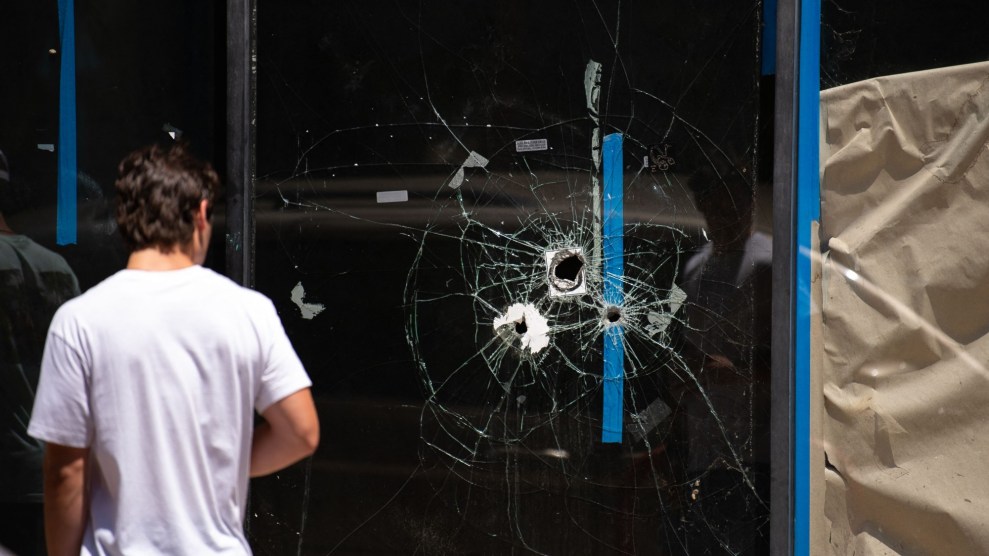
Bullet holes in the window of a store front on South Street in Philadelphia, on June 5, 2022.Kriston Jae Bethel/AFP via Getty
While lawmakers discuss modest gun-safety measures that Senate Republicans are likely to block, the shooting carnage continues apace.
At least three people were killed and 11 injured Saturday when multiple people opened fire on Philadelphia’s busy South Street. At least three more died in a shooting later Saturday at a club in Chattanooga, Tennessee. For the moment, none of those six victims count as victims of “mass shootings”—a FBI designation that requires four deaths in a single incident. Still, Saturday’s mayhem adds to a seemingly never-ending drumbeat of deadly shootings in America—most quickly forgotten, upstaged by racial massacres like Buffalo and Charleston, or the recent, brutal ending of 21 innocent lives, mostly young children’s, in Uvalde.
Over time, even the most horrific incidents can become a blur: San Ysidro. Jacksonville. Kileen. Columbine. Red Lake. Virginia Tech. Birmingham. Ft. Hood. Aurora. Newtown. Washington Navy Yard. Isla Vista. Charleston. San Bernadino. Orlando. Las Vegas. Sutherland Springs. Parkland. Santa Fe. Pittsburgh. El Paso. Boulder. Buffalo. Uvalde. On and on it goes.
Sen. Chris Murphy (D-Conn.), the lead Democratic negotiator in bipartisan talks on measures to curb gun control, said on CNN Sunday that he’s “more confident than ever” Senate Republicans will agree to pass something related to gun violence following the expected House approval of a package more extensive than most Republicans would support.
Don’t bet on it. Murphy’s sets a low bar, in any case. “There are more Republicans at the table talking about changing our gun laws, investing in mental health than at any time since Sandy Hook,” Murphy told CNN’s Jake Tapper. “I’ve also been part of many failed negotiations in the past, so I’m sober-minded about our chances.”
















